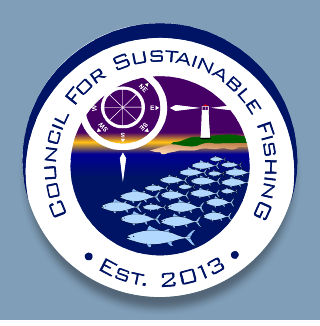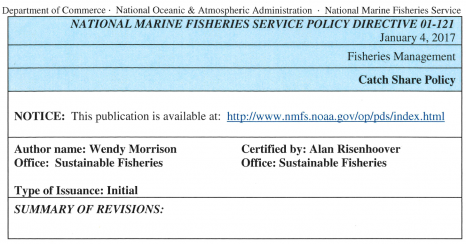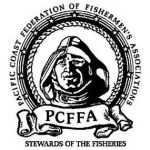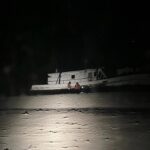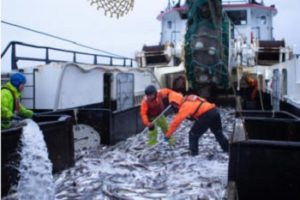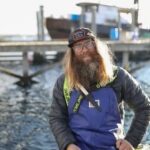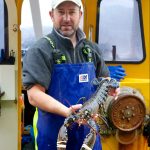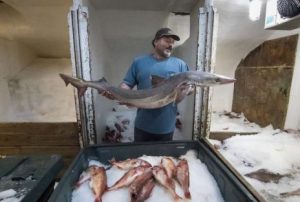Category Archives: South Atlantic
SB-884: Florida lawmakers back bill setting big fines for ‘finning’ sharks
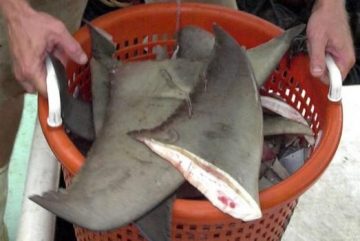 A Florida Senate panel approved legislation Wednesday to levy large fines on commercial fishermen caught carrying illegally harvested shark fins. Federal and state rules already ban finning – cutting off sharks’ fins and leaving the mutilated fish dying at sea. But there’s a legal market for fins, and in 2011 there were 96 tons of fins nationally that were shipped somewhere, either as imports or exports, according to a 2015 federal report. The bill, SB-884, approved by the appropriations subcommittee of the Senate Environment and Natural Resources Committee would require an automatic $5,000 administrative fine and a 180-day suspension of saltwater fishing licenses the first time a commercial shark fisherman is found with a severed fin. The fine would become $10,000 for a second offense and on the third time, the fisherman would be fined $10,000 and have his saltwater licenses permanently revoked. Read the story here, 14:42
A Florida Senate panel approved legislation Wednesday to levy large fines on commercial fishermen caught carrying illegally harvested shark fins. Federal and state rules already ban finning – cutting off sharks’ fins and leaving the mutilated fish dying at sea. But there’s a legal market for fins, and in 2011 there were 96 tons of fins nationally that were shipped somewhere, either as imports or exports, according to a 2015 federal report. The bill, SB-884, approved by the appropriations subcommittee of the Senate Environment and Natural Resources Committee would require an automatic $5,000 administrative fine and a 180-day suspension of saltwater fishing licenses the first time a commercial shark fisherman is found with a severed fin. The fine would become $10,000 for a second offense and on the third time, the fisherman would be fined $10,000 and have his saltwater licenses permanently revoked. Read the story here, 14:42
How a Floating Bale of Cocaine Led to the Florida Keys’ Worst Murder in Decades
 The Florida Keys are many things: a sun-bleached playground for the ultrarich, a blue-collar home to thousands of fishermen and hospitality workers, a rural chain of coral rock emerging just above the rising seas. There are ugly bar fights and plenty of drugs. But there’s hardly any gun violence. A young couple brutally executed a few feet from their young children? Never. Rosado and Ortiz’s mysterious killing on October 15, 2015, sent locals from Key Largo to Islamorada into a panic and left sheriff’s deputies scrambling. Detectives would follow a trail of violence and blackmail for months before divining its source: Jeremy Macauley, a fisherman with a troubled past who’d found a bale of pure cocaine floating in the turquoise sea. Months later, a prosecutor’s suicide and a surprise jailhouse interview would further muddy the tale. continue reading the story here 11:57
The Florida Keys are many things: a sun-bleached playground for the ultrarich, a blue-collar home to thousands of fishermen and hospitality workers, a rural chain of coral rock emerging just above the rising seas. There are ugly bar fights and plenty of drugs. But there’s hardly any gun violence. A young couple brutally executed a few feet from their young children? Never. Rosado and Ortiz’s mysterious killing on October 15, 2015, sent locals from Key Largo to Islamorada into a panic and left sheriff’s deputies scrambling. Detectives would follow a trail of violence and blackmail for months before divining its source: Jeremy Macauley, a fisherman with a troubled past who’d found a bale of pure cocaine floating in the turquoise sea. Months later, a prosecutor’s suicide and a surprise jailhouse interview would further muddy the tale. continue reading the story here 11:57
Sale and trade of shark fins to continue in Florida, and environmentalists are upset
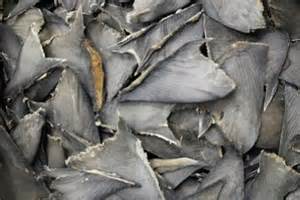 Environmentalists sighed in disappointment after a Florida Senate bill banning the sale and trade of shark fins was amended last week, weakening its original intent. Originally proposed by Northeast Florida Senator Travis Hutson, R-Elkton, Senate Bill 884 would have thwarted the lucrative business of shark fin sales with strong language outlining the punishment and violations of the sale, trade or distribution of fins. “Eleven other states that had ports where this activity was taking place have already banned the sale and trade of shark fins,” said Erin Handy, campaign organizer for Oceana’s Climate & Energy Campaign in Florida. “Florida would have been the twelfth.” Handy speculates the state has been slow to implement rules against the sale and trade of shark fins due to the fishing industry. “There’s some opposition from the fishing industry saying the fins are the most valuable part and they should be able to sell them if they catch the shark and land it legally,” she said. That is called common sense! read the story here 08:49
Environmentalists sighed in disappointment after a Florida Senate bill banning the sale and trade of shark fins was amended last week, weakening its original intent. Originally proposed by Northeast Florida Senator Travis Hutson, R-Elkton, Senate Bill 884 would have thwarted the lucrative business of shark fin sales with strong language outlining the punishment and violations of the sale, trade or distribution of fins. “Eleven other states that had ports where this activity was taking place have already banned the sale and trade of shark fins,” said Erin Handy, campaign organizer for Oceana’s Climate & Energy Campaign in Florida. “Florida would have been the twelfth.” Handy speculates the state has been slow to implement rules against the sale and trade of shark fins due to the fishing industry. “There’s some opposition from the fishing industry saying the fins are the most valuable part and they should be able to sell them if they catch the shark and land it legally,” she said. That is called common sense! read the story here 08:49
Oversight Hearing on Examining the Creation and Management of Marine Monuments and Sanctuaries Wednesday, March 15, 2017 10:00 AM
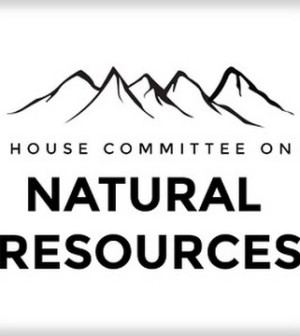 Oversight Hearing on: “Examining the Creation and Management of Marine Monuments and Sanctuaries” Click here to read the memo Witnesses and Testimony: Dr. John Bruno Professor, Department of Biology University of North Carolina, Mr. Chett Chiasson Executive Director Greater Lafourche Port Commission, Mr. Brian Hallman Executive Director American Tunaboat Association, The Honorable Jon Mitchell Mayor City of New Bedford Click here @ 10:00am and listen to the hearing. 19:05
Oversight Hearing on: “Examining the Creation and Management of Marine Monuments and Sanctuaries” Click here to read the memo Witnesses and Testimony: Dr. John Bruno Professor, Department of Biology University of North Carolina, Mr. Chett Chiasson Executive Director Greater Lafourche Port Commission, Mr. Brian Hallman Executive Director American Tunaboat Association, The Honorable Jon Mitchell Mayor City of New Bedford Click here @ 10:00am and listen to the hearing. 19:05
NOAA Turns a Blind Eye – How manipulation and corruption are making a mockery of federal fisheries management
 This question often comes up in discussions about the federal fisheries management process: Why are people who profit from the harvest and sale of America’s marine resources allowed to sit on management bodies that make regulations governing those resources? It’s a good question. The most contentious issue in the Gulf of Mexico is privatization of the red snapper fishery in which millions of dollars’ worth of a public resource was gifted to select commercial operators to harvest for their own personal profit. Gifted, for free. Yet, someone who owns red snapper shares can sit on the Gulf Council and vote on every aspect of that fishery. And one does. Over the past few years, certain members of the charter/for-hire sector have worked to launch a privatization program in which they, too, could own shares and use red snapper as their own. Yet, on the Gulf Council, people who own charter businesses and stand to directly benefit from the program are never required to recuse themselves from votes on that program. continue reading the article here 08:24
This question often comes up in discussions about the federal fisheries management process: Why are people who profit from the harvest and sale of America’s marine resources allowed to sit on management bodies that make regulations governing those resources? It’s a good question. The most contentious issue in the Gulf of Mexico is privatization of the red snapper fishery in which millions of dollars’ worth of a public resource was gifted to select commercial operators to harvest for their own personal profit. Gifted, for free. Yet, someone who owns red snapper shares can sit on the Gulf Council and vote on every aspect of that fishery. And one does. Over the past few years, certain members of the charter/for-hire sector have worked to launch a privatization program in which they, too, could own shares and use red snapper as their own. Yet, on the Gulf Council, people who own charter businesses and stand to directly benefit from the program are never required to recuse themselves from votes on that program. continue reading the article here 08:24
South Atlantic Fishery Management Council may hike overall lobster harvest
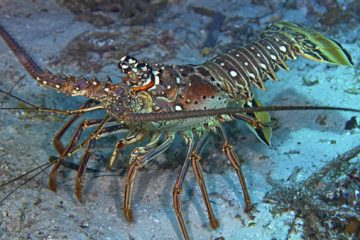 Federal fishery managers meeting this week in Georgia hear proposals to raise the annual limit on spiny lobster harvests, the Florida Keys’ most economically important commercial species. The South Atlantic Fishery Management Council meets from Monday through Friday at the Westin resort in Jekyll Island, Ga. Permit limits in the for-hire (charter) sector in the snapper-grouper fishery also are up for discussion. The council is considering raising the annual catch numbers of spiny lobster because fishers contend that the number were based on yearly averages that include some of the worst lobster seasons on record. Twice in recent years, the harvests have exceeded the current catch limit of 7.3 million pounds. A legal sized spiny lobster weighs about 1 pound. During the bad seasons, “the historic low level of landings that were documented for the species [suggested] biological conditions had changed and that spiny lobster populations were at a new low normal,” says council staff summary. “Since landings have been much higher than anticipated, the review panel… determined that conditions for spiny lobster are likely better than they were during the 10-year period of low landings.” continue reading the story here 14:19
Federal fishery managers meeting this week in Georgia hear proposals to raise the annual limit on spiny lobster harvests, the Florida Keys’ most economically important commercial species. The South Atlantic Fishery Management Council meets from Monday through Friday at the Westin resort in Jekyll Island, Ga. Permit limits in the for-hire (charter) sector in the snapper-grouper fishery also are up for discussion. The council is considering raising the annual catch numbers of spiny lobster because fishers contend that the number were based on yearly averages that include some of the worst lobster seasons on record. Twice in recent years, the harvests have exceeded the current catch limit of 7.3 million pounds. A legal sized spiny lobster weighs about 1 pound. During the bad seasons, “the historic low level of landings that were documented for the species [suggested] biological conditions had changed and that spiny lobster populations were at a new low normal,” says council staff summary. “Since landings have been much higher than anticipated, the review panel… determined that conditions for spiny lobster are likely better than they were during the 10-year period of low landings.” continue reading the story here 14:19
South Atlantic Fishery Management Council meeting in Jekyll Island, GA March 6-10, 2017
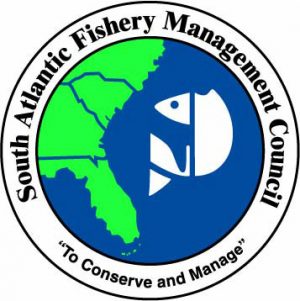 The public is invited to attend the South Atlantic Fishery Management Council to be held at The Westin Jekyll Island, 110 Ocean Way, Jekyll Island, GA 31527, USA. Click here for details Webinar Registration: Listen Live, Click here 14:00
The public is invited to attend the South Atlantic Fishery Management Council to be held at The Westin Jekyll Island, 110 Ocean Way, Jekyll Island, GA 31527, USA. Click here for details Webinar Registration: Listen Live, Click here 14:00
Controversy brewing over snapper-grouper Exempted Fishing Permit
 A storm is brewing in the South Atlantic region, a storm of controversy over snapper-grouper fisheries access and allocation. A group of four commercial fishing businesses – the South Atlantic Commercial Fishing Collaborative – filed an Exempted Fishing Permit (EFP) application with the National Marine Fisheries Service on Feb. 6. If approved by NMFS, the EFP would allow a group of 25 snapper-grouper boats operated by the four businesses to harvest blueline tilefish, gag grouper, gray triggerfish, greater amberjack, vermilion snapper and species in the jacks complex for two years (2018-19) in a pilot program while being exempt from numerous fishing regulations. The generic name for such a fisheries management method is catch shares, which, according to NOAA Fisheries, is a program in which “a portion of the catch for a species is allocated to individual fishermen or groups. Each holder of a catch share must stop fishing when his/her specific share of the quota is reached.” But it is a concept the huge majority of saltwater fishermen – recreational fishermen and small commercial fishing operations – have proven to be vehemently opposed to. continue reading the story here 08:12
A storm is brewing in the South Atlantic region, a storm of controversy over snapper-grouper fisheries access and allocation. A group of four commercial fishing businesses – the South Atlantic Commercial Fishing Collaborative – filed an Exempted Fishing Permit (EFP) application with the National Marine Fisheries Service on Feb. 6. If approved by NMFS, the EFP would allow a group of 25 snapper-grouper boats operated by the four businesses to harvest blueline tilefish, gag grouper, gray triggerfish, greater amberjack, vermilion snapper and species in the jacks complex for two years (2018-19) in a pilot program while being exempt from numerous fishing regulations. The generic name for such a fisheries management method is catch shares, which, according to NOAA Fisheries, is a program in which “a portion of the catch for a species is allocated to individual fishermen or groups. Each holder of a catch share must stop fishing when his/her specific share of the quota is reached.” But it is a concept the huge majority of saltwater fishermen – recreational fishermen and small commercial fishing operations – have proven to be vehemently opposed to. continue reading the story here 08:12
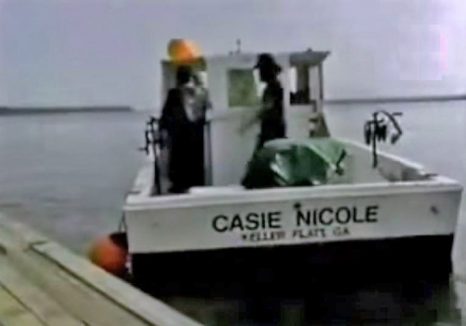
This is the story of the Casie Nicole a boat captained by Billie Joe Neesmith
On April 11, 1990, Nathan Neesmith, his brother Billy Joe Neesmith, his nephew Keith Wilkes, and his friend Franklin Brantley set off from McIntosh County pier in Georgia to go on a seven-day commercial fishing expedition. Their ship, Casie Nicole, had just recently been docked for maintenance. They took it to an uncharted reef off the coast of South Carolina. Early in the morning on April 12, their boat capsized and quickly took on water. They had to abandon the ship, so they boarded a raft. Nathan Neesmith left the other three men in the raft with some food and went off in a wooden box to go find help. He was rescued five days later, but the rest of the men were never found. The only things ever found were a sleeping bag and a life vest. To this day their fate is unknown. They were about 65 miles off shore, and Nathan said that he’d got up around three-thirty, four am in the morning, started the engine, and started driving to somewhere to go fishing. He noticed the boat was heavy with maneuvering, and it wasn’t going over the waves, it was kind of ploughing through them,,, continue reading the story here 22:33
2016 Annual Report of the Atlantic States Marine Fisheries Commission
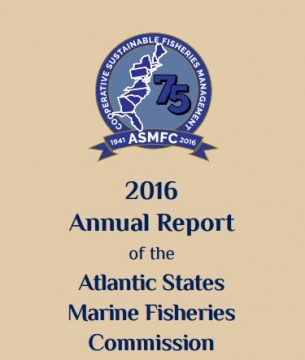 Report to Our Stakeholders Robert E. Beal – On behalf of the Commission and the 15 Atlantic coastal states, I am pleased to present our 2016 Annual Report. The report fulfills our obligation to inform Congress on the Commission’s use of public funds, provides our stakeholders with a summary of activities and progress in carrying out our cooperative stewardship responsibilities, and reflects our Commissioners’ commitment to accountability and transparency in all they do to manage and rebuild fisheries under their care. We remain grateful to the Administration, Members of Congress, our governors and state legislators for their continued support. Many of our accomplishments would not have been possible without their trust and confidence. Read the report here 16:03
Report to Our Stakeholders Robert E. Beal – On behalf of the Commission and the 15 Atlantic coastal states, I am pleased to present our 2016 Annual Report. The report fulfills our obligation to inform Congress on the Commission’s use of public funds, provides our stakeholders with a summary of activities and progress in carrying out our cooperative stewardship responsibilities, and reflects our Commissioners’ commitment to accountability and transparency in all they do to manage and rebuild fisheries under their care. We remain grateful to the Administration, Members of Congress, our governors and state legislators for their continued support. Many of our accomplishments would not have been possible without their trust and confidence. Read the report here 16:03
Spiny Lobster season in the Florida Keys: Not as strong, not a disaster
 One month remains in the regular lobster season but many of the traps put out by the Florida Keys commercial fleet are back on the hill — meaning pulled ashore until next summer. “We’re bringing in about 235 traps now from 200 feet of water,” Conch Key commercial fisherman Gary Nichols said Tuesday. “This season has been kind of fairly good,” Nichols reported from aboard his 43-foot boat. “It’s not as good as the last couple of years and the market has been softer.” Tom Hill at Key Largo Fisheries agreed, “It hasn’t been a bad year, but it’s not as robust as it has been. I think we have had less production than in the past few seasons.”,, The Asian market for live Florida lobster, which buoyed the fleet after the economic recession, remains a critical component of the fishing economy but was not as profitable as in the past seven to eight years. continue reading the story here 10:17
One month remains in the regular lobster season but many of the traps put out by the Florida Keys commercial fleet are back on the hill — meaning pulled ashore until next summer. “We’re bringing in about 235 traps now from 200 feet of water,” Conch Key commercial fisherman Gary Nichols said Tuesday. “This season has been kind of fairly good,” Nichols reported from aboard his 43-foot boat. “It’s not as good as the last couple of years and the market has been softer.” Tom Hill at Key Largo Fisheries agreed, “It hasn’t been a bad year, but it’s not as robust as it has been. I think we have had less production than in the past few seasons.”,, The Asian market for live Florida lobster, which buoyed the fleet after the economic recession, remains a critical component of the fishing economy but was not as profitable as in the past seven to eight years. continue reading the story here 10:17
Sebastian Inlet District to crack down on angry anglers defecating and spreading it on the rail to mark their territory
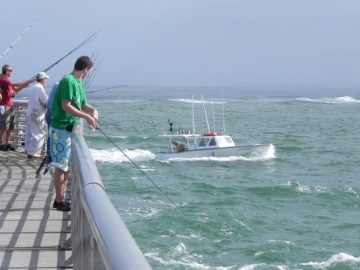 At Sebastian Inlet fishing pier, lines often cross. And tangled tackle ticks off fishermen so much, they often revert to territorial tactics, casting aspersions and sometimes other things at their angling adversaries, inlet officials and fishermen say. They hurl lead fishing weights, lures and other objects at folks fishing from boats. Or sometimes boaters are the primary aggressors. Signs and video cameras haven’t tempered things much. Inlet officials say that in the past few years, the pier atmosphere has degraded into a state of constant territorial marking, as things just keep hitting the fan — and sometimes even the concrete pier and its cylindrical metal rails. “We’ve had reports of people defecating and spreading it on the rail to mark their territory so nobody will fish next to them,” said Martin Smithson, administrator for the Sebastian Inlet District. “There have been several citations for public urination.” Read the story here 08:14
At Sebastian Inlet fishing pier, lines often cross. And tangled tackle ticks off fishermen so much, they often revert to territorial tactics, casting aspersions and sometimes other things at their angling adversaries, inlet officials and fishermen say. They hurl lead fishing weights, lures and other objects at folks fishing from boats. Or sometimes boaters are the primary aggressors. Signs and video cameras haven’t tempered things much. Inlet officials say that in the past few years, the pier atmosphere has degraded into a state of constant territorial marking, as things just keep hitting the fan — and sometimes even the concrete pier and its cylindrical metal rails. “We’ve had reports of people defecating and spreading it on the rail to mark their territory so nobody will fish next to them,” said Martin Smithson, administrator for the Sebastian Inlet District. “There have been several citations for public urination.” Read the story here 08:14
AMSEA to hold two Fishing Vessel Drill Conductor Workshops in South Carolina in March
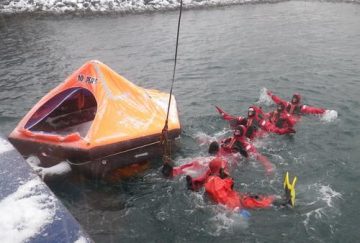 Alaska Marine Safety Education Association workshops meet the U. S. Coast Guard training requirements for drill conductors on documented commercial fishing vessels operating beyond the federal boundary line. On Thursday, March 9, a workshop will be conducted in Murrells Inlet from 8:00 a.m. to 8:00 p.m. at the Murrells Inlet Community Center, 4462 Murrells Inlet Road. A second workshop will be conducted on Saturday, March 11 in McClellanville at the McClellanville Town Office, 405 Pinckney Street. Instructor Michael Lawson will cover man-overboard recovery and firefighting, emergency position-indicating radio beacon stations, flares and maydays, emergency drills, helicopter rescue, life rafts and abandon ship procedures, personal floatation devices, immersion suits and cold-water survival skills. The workshop will include an “in-the-water” practice session for participants to practice survival skills. Interested mariners may register for the workshops online at www.amsea.org or call AMSEA at 907-747-3287. Link 07:15
Alaska Marine Safety Education Association workshops meet the U. S. Coast Guard training requirements for drill conductors on documented commercial fishing vessels operating beyond the federal boundary line. On Thursday, March 9, a workshop will be conducted in Murrells Inlet from 8:00 a.m. to 8:00 p.m. at the Murrells Inlet Community Center, 4462 Murrells Inlet Road. A second workshop will be conducted on Saturday, March 11 in McClellanville at the McClellanville Town Office, 405 Pinckney Street. Instructor Michael Lawson will cover man-overboard recovery and firefighting, emergency position-indicating radio beacon stations, flares and maydays, emergency drills, helicopter rescue, life rafts and abandon ship procedures, personal floatation devices, immersion suits and cold-water survival skills. The workshop will include an “in-the-water” practice session for participants to practice survival skills. Interested mariners may register for the workshops online at www.amsea.org or call AMSEA at 907-747-3287. Link 07:15
Offshore drilling opponents re-gear for new round of battles
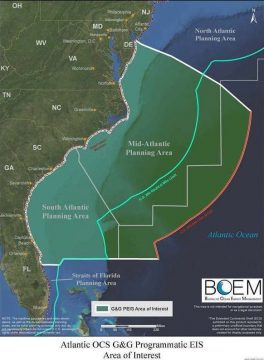 A little more than a month after seismic blast testing for oil and natural gas was stopped offshore of South Carolina, exploration companies are gearing up for a new try. A dozen anti-drilling advocates met Tuesday in Charleston to discuss expanding the opposition. They may look inland for more support in the vein of the massive coastal protest that in 2016 helped derail plans for testing and drilling. Frank Knapp, founder of the anti-drilling Business Alliance for Protecting the Atlantic Coast, said he has heard the exploration industry is planning to approach the federal Bureau of Ocean Energy Management about reversing a testing permit denial adopted during the last days of the Obama administration. Knapp’s group represents more than 35,000 businesses and 500,000 commercial fishing families from Maine to Florida. Continue reading the story here 17:58
A little more than a month after seismic blast testing for oil and natural gas was stopped offshore of South Carolina, exploration companies are gearing up for a new try. A dozen anti-drilling advocates met Tuesday in Charleston to discuss expanding the opposition. They may look inland for more support in the vein of the massive coastal protest that in 2016 helped derail plans for testing and drilling. Frank Knapp, founder of the anti-drilling Business Alliance for Protecting the Atlantic Coast, said he has heard the exploration industry is planning to approach the federal Bureau of Ocean Energy Management about reversing a testing permit denial adopted during the last days of the Obama administration. Knapp’s group represents more than 35,000 businesses and 500,000 commercial fishing families from Maine to Florida. Continue reading the story here 17:58
Bully-net lobster fishermen can get new commercial status
 A new Florida commercial lobster license for bully-netters will come with a “Respectful Bully Netting” outreach campaign. Florida Fish and Wildlife Conservation Commission members on Feb. 8 approved creation of a new bully-net endorsement for people who have a commercial endorsement for lobster.“Conflicts between waterfront homeowners and bully-netters” was cited as one concern about expanding the commercial lobster industry to include the netting technique. The increased use of bully nets for commercial lobstering “allows opportunities for young or new fishers and preserves the culture of participation in the Keys commercial lobster fishery”. Continue reading the story here 14:45
A new Florida commercial lobster license for bully-netters will come with a “Respectful Bully Netting” outreach campaign. Florida Fish and Wildlife Conservation Commission members on Feb. 8 approved creation of a new bully-net endorsement for people who have a commercial endorsement for lobster.“Conflicts between waterfront homeowners and bully-netters” was cited as one concern about expanding the commercial lobster industry to include the netting technique. The increased use of bully nets for commercial lobstering “allows opportunities for young or new fishers and preserves the culture of participation in the Keys commercial lobster fishery”. Continue reading the story here 14:45
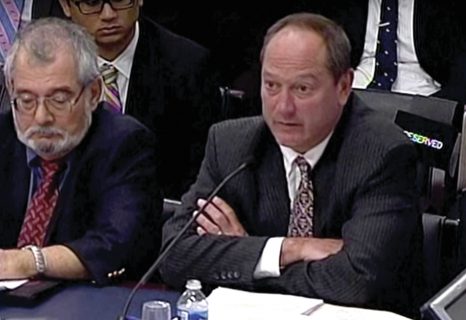
North Pacific council director a possibility for Assistant Administrator position at NMFS replacing Eileen Sobeck
Chris Oliver, the executive director of the North Pacific Fishery Management Council for the past 16 years, didn’t ask for a consideration as the new assistant administrator for the National Marine Fisheries Service; rather, the most powerful fishing industry voices in the nation’s most profitable region asked. He doesn’t know if the new administration will offer it or if he’d want it if it did. Still, looking at his history, knowledge and reputation, he seems in many ways a natural fit. Oliver said when it became known that the current administrator, Eileen Sobeck, won’t be staying with the new administration, parts of the fishing universe aligned. In the North Pacific and elsewhere, catch share systems are a contentious issue; Oliver said in an interview he’s already had fisheries stakeholders from other regions probing for what his intent would be with their respective fisheries. Oliver’s answer sums up both his attitude and in part that of the new administration. “It’s not my call,” he said. “What makes sense in the North Pacific…may not make sense in New England, or in the Gulf of Mexico. Read the story here 10:47
Everglades National Park Superintendent suspends new fee after outcry
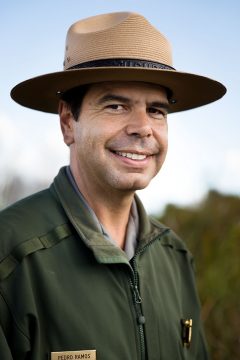 Following pushback from some local professional fishing guides, Everglades National Park Superintendent Pedro Ramos has suspended a new rule that would have required a per person fee for vessels entering federal waters in Florida Bay. Late last month, a park email was circulated that informed a handful of Upper Keys guides that enforcement of an entrance fee for people on vessels would begin in April. This included customers aboard a commercial boat, recreational anglers on a personal boat and kayakers. The park’s general management plan, which became effective last year after over a decade in the making, said that vessels in the future could be charged a per person fee. It didn’t have a specific date, though. Last month was the first many became aware of the plan to enforce it. Currently, an entrance fee is paid only by those coming to the park by land.. Read the story here 11:32
Following pushback from some local professional fishing guides, Everglades National Park Superintendent Pedro Ramos has suspended a new rule that would have required a per person fee for vessels entering federal waters in Florida Bay. Late last month, a park email was circulated that informed a handful of Upper Keys guides that enforcement of an entrance fee for people on vessels would begin in April. This included customers aboard a commercial boat, recreational anglers on a personal boat and kayakers. The park’s general management plan, which became effective last year after over a decade in the making, said that vessels in the future could be charged a per person fee. It didn’t have a specific date, though. Last month was the first many became aware of the plan to enforce it. Currently, an entrance fee is paid only by those coming to the park by land.. Read the story here 11:32
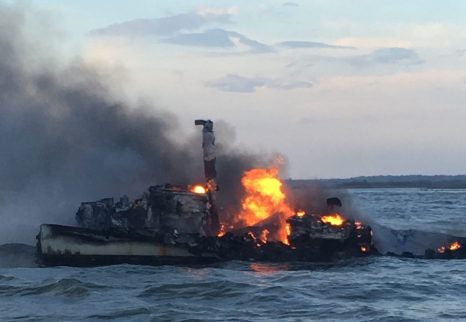
Coast Guard rescues 3 fishermen after vessel catches fire near St. Catherines Island, Ga.
The Coast Guard rescued three fishermen Tuesday after the fishing vessel they were on caught fire 1 mile east of St. Catherines Island, Georgia. Coast Guard Sector Charleston Command Center watchstanders received a call from a crew member aboard the fishing vessel Sea Puppy at 3:16 p.m. who stated their boat was on fire and taking on water. A Coast Guard Station Tybee Island 29-foot Response Boat – Small boat crew and an Air Station Savannah MH-65 Dolphin helicopter aircrew launched at approximately 3:25 p.m. The Dolphin crew arrived on scene at 4:30 p.m., hoisted the fishermen and transported them to Air Station Savannah to awaiting EMS. No injuries were reported. Coast Guard pollution investigators arrived on scene, and the cause of the fire is under investigation. 19:17
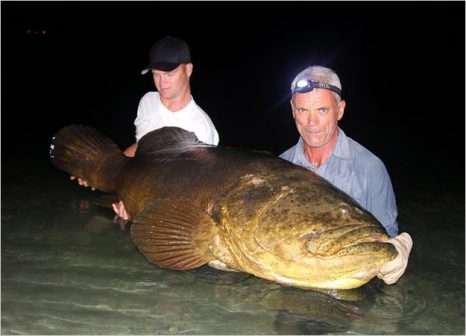
Will Florida allow goliath grouper fishing?
State wildlife officials will discuss the fish’s fate when the Florida Fish and Wildlife Conservation Commission (FWC) meets Feb. 8-10 in Crystal River. There is no specific proposal yet to allow the goliath’s harvest. At Wednesday’s meeting, FWC staff will provide the commission a review of the biology and recently-completed study of the fish’s population. “This is a review and discussion on the history, biology and recent stock assessment,” Amanda Nalley, an FWC spokeswoman said by email. “FWC will be asking the Commission whether or not staff should pursue gathering further public input on potential management changes, including the possibility of allowing some kind of limited harvest.” Read the story here 10:57
White shrimp weighing in at 10-12 count per pound? In late January?
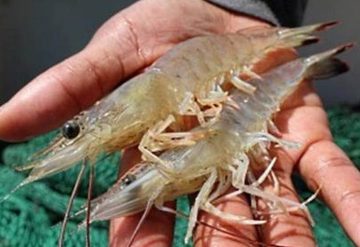 That is exactly how the 2016-17 commercial shrimping season in South Carolina state waters wound up earlier this week, at the end of January. The season typically closes by mid-January but excellent catches of jumbo shrimp by trawlers kept it open later. “I’ve had people tell me they’ve never seen big shrimp like this out there this time of year,” Mel Bell, Director of the Office of Fisheries Management for the South Carolina Department of Natural Resources, said on Thursday. “It’s been an unusual close to the season. It’s normally closed by mid-January, and if it’s a colder winter, maybe earlier. “We’ve never seen that phenomenon of those large shrimp offshore. I’ve talked to fishermen who have been in the industry for decades and they’ve never seen anything like that.” Read the story here 18:07
That is exactly how the 2016-17 commercial shrimping season in South Carolina state waters wound up earlier this week, at the end of January. The season typically closes by mid-January but excellent catches of jumbo shrimp by trawlers kept it open later. “I’ve had people tell me they’ve never seen big shrimp like this out there this time of year,” Mel Bell, Director of the Office of Fisheries Management for the South Carolina Department of Natural Resources, said on Thursday. “It’s been an unusual close to the season. It’s normally closed by mid-January, and if it’s a colder winter, maybe earlier. “We’ve never seen that phenomenon of those large shrimp offshore. I’ve talked to fishermen who have been in the industry for decades and they’ve never seen anything like that.” Read the story here 18:07
‘Phenomenal’ shrimp season still playing out in the Lowcountry
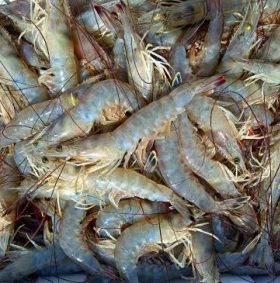 It’s the cold end of January and that means the end of commercial shrimping is..umm..maybe not even going to happen. It’s phenomenal, said Mel Bell, S.C. Department of Natural Resources fisheries management director. “This is the latest I’ve heard us close. The size they’re bringing in out there we’ve never seen before” this time of year, he said. Not only that, but “provisional” waters will remain open another week. Those are waters roughly beyond two miles out, between the nearshore state waters and federal waters even farther out. And federal waters don’t close at all unless it’s a bad winter. Lowcountry boats have been slaying them in those provisional and federal waters. “Definitely,” said Shem Creek shrimper Tommy Edwards, who has been pulling in shrimp so big they’re weighing out at 13 to the pound. “We’re doing better now than we were when the season was going strong. Right now we’re looking at shrimping all the way through February. We’re not going to close if conditions are right.” Read the story here 13:40
It’s the cold end of January and that means the end of commercial shrimping is..umm..maybe not even going to happen. It’s phenomenal, said Mel Bell, S.C. Department of Natural Resources fisheries management director. “This is the latest I’ve heard us close. The size they’re bringing in out there we’ve never seen before” this time of year, he said. Not only that, but “provisional” waters will remain open another week. Those are waters roughly beyond two miles out, between the nearshore state waters and federal waters even farther out. And federal waters don’t close at all unless it’s a bad winter. Lowcountry boats have been slaying them in those provisional and federal waters. “Definitely,” said Shem Creek shrimper Tommy Edwards, who has been pulling in shrimp so big they’re weighing out at 13 to the pound. “We’re doing better now than we were when the season was going strong. Right now we’re looking at shrimping all the way through February. We’re not going to close if conditions are right.” Read the story here 13:40
ASMFC Winter Meeting – January 30 – February 2, 2017 in Alexandria, Virginia
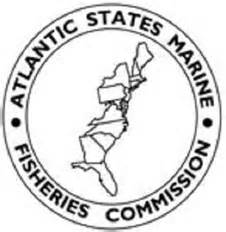 Final Agenda, Click here For ease of access, all Board/Section meeting documents, with the exception of the Shad & River Herring Board materials and the submitted public comment portion of the Atlantic Menhaden Board materials, have been combined into two documents – Main Meeting Materials 1 and Main Meeting Materials 2. Main Meeting Materials 1 includes all boards/sections meeting on January 31 and Main Meeting Materials 2 are materials for the remainder of the week. Additionally, supplemental materials have been combined into document – Supplemental Materials. Links to individual board/committee materials can be found below. Board/Section meeting proceedings will be broadcast daily via webinar beginning at 8:00 a.m. on January 31st and continuing daily until the conclusion of the meeting (expected to be 3:00 p.m.) on Thursday February 2nd. The webinar will allow registrants to listen to board/section deliberations and view presentations and motions as they occur. Click here for access. 19:57
Final Agenda, Click here For ease of access, all Board/Section meeting documents, with the exception of the Shad & River Herring Board materials and the submitted public comment portion of the Atlantic Menhaden Board materials, have been combined into two documents – Main Meeting Materials 1 and Main Meeting Materials 2. Main Meeting Materials 1 includes all boards/sections meeting on January 31 and Main Meeting Materials 2 are materials for the remainder of the week. Additionally, supplemental materials have been combined into document – Supplemental Materials. Links to individual board/committee materials can be found below. Board/Section meeting proceedings will be broadcast daily via webinar beginning at 8:00 a.m. on January 31st and continuing daily until the conclusion of the meeting (expected to be 3:00 p.m.) on Thursday February 2nd. The webinar will allow registrants to listen to board/section deliberations and view presentations and motions as they occur. Click here for access. 19:57
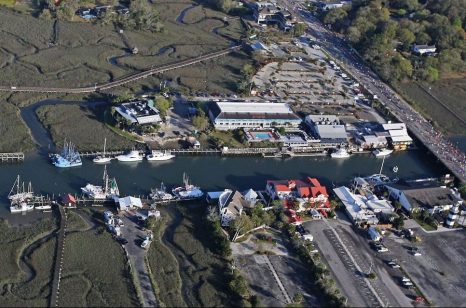
The struggle to preserve Charleston’s ‘working waterfront’
In McClellanville, longtime commercial fishing businessman Rutledge Leland is mulling retirement from Carolina Seafoods and talking to the town’s cadre of shrimpers and other fishing professionals about forming a co-op along Jeremy Creek. In Mount Pleasant, town officials stepped in to moderate an intensifying feud among residents, recreational boaters, commercial fishing interests and others over just what to do about Shem Creek. The town formed an ad hoc committee from among them. At issue is whether the working waterfront can be saved. As those two towns suggest, the answer might just vary from spot to spot. Read the story here 07:59
Port of Savannah leads in the export of shark fins
 For the last three years the port of Savannah has been the U.S. leader in the export of shark fins, a legal but controversial trade item used to make shark fin soup, a delicacy in parts of Asia. Federal fisheries data show that although no shark fin was exported from Savannah in 2013, the trade here jumped in the following years from 18,444 pounds in 2014 to 25,765 pounds in 2015. That amounts to about $1.2 million in shark fins over the two years. Last year through November the export amounted to 19,171 pounds, valued at $559,845. In each case the shark fins were shipped to Hong Kong. Oceana is now advocating a nationwide ban on the shark fin trade. Not all shark lovers agree. Shark researcher Chris Fischer, a founder of Ocearch and a leader of its expeditions to catch and satellite tag great white sharks, said shutting down trade here will merely create a bigger opportunity for unmanaged fisheries elsewhere. Read the story here 12:33
For the last three years the port of Savannah has been the U.S. leader in the export of shark fins, a legal but controversial trade item used to make shark fin soup, a delicacy in parts of Asia. Federal fisheries data show that although no shark fin was exported from Savannah in 2013, the trade here jumped in the following years from 18,444 pounds in 2014 to 25,765 pounds in 2015. That amounts to about $1.2 million in shark fins over the two years. Last year through November the export amounted to 19,171 pounds, valued at $559,845. In each case the shark fins were shipped to Hong Kong. Oceana is now advocating a nationwide ban on the shark fin trade. Not all shark lovers agree. Shark researcher Chris Fischer, a founder of Ocearch and a leader of its expeditions to catch and satellite tag great white sharks, said shutting down trade here will merely create a bigger opportunity for unmanaged fisheries elsewhere. Read the story here 12:33
81 False killer whales die off South Florida coast
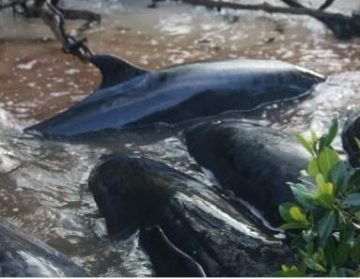 81 false killer whales have died after stranding themselves off the South Florida coast. NOAA announced the grim news on Monday afternoon. NOAA initially reported that 95 false killer whales were stranded in South Florida. Then on Monday afternoon, NOAA Fish Southeast tweeted that 81 whales had died and also said the whales were at a remote location off of Hog Key in the Everglades. One whale was seen alive on Monday and 13 others are unaccounted for, NOAA Fish Southeast said on Twitter on Monday afternoon. The National Park Service has closed the area around the whale stranding location. The National Park Service is asking that aircraft not fly over the area and that boats stay away from the area. Read the rest here 15:14
81 false killer whales have died after stranding themselves off the South Florida coast. NOAA announced the grim news on Monday afternoon. NOAA initially reported that 95 false killer whales were stranded in South Florida. Then on Monday afternoon, NOAA Fish Southeast tweeted that 81 whales had died and also said the whales were at a remote location off of Hog Key in the Everglades. One whale was seen alive on Monday and 13 others are unaccounted for, NOAA Fish Southeast said on Twitter on Monday afternoon. The National Park Service has closed the area around the whale stranding location. The National Park Service is asking that aircraft not fly over the area and that boats stay away from the area. Read the rest here 15:14
Catch share threat is back
 As we enter 2017, the biggest threat to commercial and recreational fishermen in the South Atlantic is back: private ownership of the snapper-grouper fishery through a catch share program. Fishery stakeholders have year after year overwhelmingly rejected any form of catch shares. Most recently, 97 percent of the comments on the South Atlantic Fishery Management Council’s long-range snapper-grouper management plan opposed catch shares — a plan the council promised would be “stakeholder-driven.” Yet, SAFMC Vice Chair Charlie Phillips has revealed that he, SAFMC member Chris Conklin and former SAFMC member Jack Cox, all commercial snapper-grouper fleet owners and dealers, are leading an effort to get a voluntary “pilot” catch share program in place this year using an “Exempted Fishing Permit,” which is a back door way to avoid the normal fishery regulation approval process. In a recent article in the Charleston, SC Post & Courier, Vice Chair Phillips touts that the permit would “allow them to catch all year.” The article also reveals that the Seafood Harvesters of America, which has been funded with over $300,000 from the radical Environmental Defense Fund, is supporting the EFP application. The Seafood Harvesters represent some of the biggest catch share owners in the nation. Read the post here 11:06
As we enter 2017, the biggest threat to commercial and recreational fishermen in the South Atlantic is back: private ownership of the snapper-grouper fishery through a catch share program. Fishery stakeholders have year after year overwhelmingly rejected any form of catch shares. Most recently, 97 percent of the comments on the South Atlantic Fishery Management Council’s long-range snapper-grouper management plan opposed catch shares — a plan the council promised would be “stakeholder-driven.” Yet, SAFMC Vice Chair Charlie Phillips has revealed that he, SAFMC member Chris Conklin and former SAFMC member Jack Cox, all commercial snapper-grouper fleet owners and dealers, are leading an effort to get a voluntary “pilot” catch share program in place this year using an “Exempted Fishing Permit,” which is a back door way to avoid the normal fishery regulation approval process. In a recent article in the Charleston, SC Post & Courier, Vice Chair Phillips touts that the permit would “allow them to catch all year.” The article also reveals that the Seafood Harvesters of America, which has been funded with over $300,000 from the radical Environmental Defense Fund, is supporting the EFP application. The Seafood Harvesters represent some of the biggest catch share owners in the nation. Read the post here 11:06
Feds Take Controversial Mid and South Atlantic Seismic Air Gun Testing Off Table
 Federal officials announced on Friday a controversial plan to allow dangerous seismic air gun testing in a vast section off the mid-Atlantic coast including an area as close as 20 miles off the coast of Ocean City has been removed from consideration. With a proposal to lease a vast area totaling roughly three million acres off the mid-Atlantic coast to offshore drilling for oil and natural gas reserves already taken off the table last spring, the federal Bureau of Ocean Energy Management (BOEM) announced on Friday a companion plan to open the same area to seismic airgun testing has been denied. Seismic airgun testing is used to determine what oil and natural gas reserves lie beneath the ocean floor. However, once the plan to allow offshore drilling off the mid-Atlantic coast was removed from consideration, at least for the next five years, BOEM officials determined there was no good reason to allow potentially dangerous seismic testing in the same areas off the mid-Atlantic coast including Ocean City and Assateague, for example. Read the story here 10:12
Federal officials announced on Friday a controversial plan to allow dangerous seismic air gun testing in a vast section off the mid-Atlantic coast including an area as close as 20 miles off the coast of Ocean City has been removed from consideration. With a proposal to lease a vast area totaling roughly three million acres off the mid-Atlantic coast to offshore drilling for oil and natural gas reserves already taken off the table last spring, the federal Bureau of Ocean Energy Management (BOEM) announced on Friday a companion plan to open the same area to seismic airgun testing has been denied. Seismic airgun testing is used to determine what oil and natural gas reserves lie beneath the ocean floor. However, once the plan to allow offshore drilling off the mid-Atlantic coast was removed from consideration, at least for the next five years, BOEM officials determined there was no good reason to allow potentially dangerous seismic testing in the same areas off the mid-Atlantic coast including Ocean City and Assateague, for example. Read the story here 10:12






